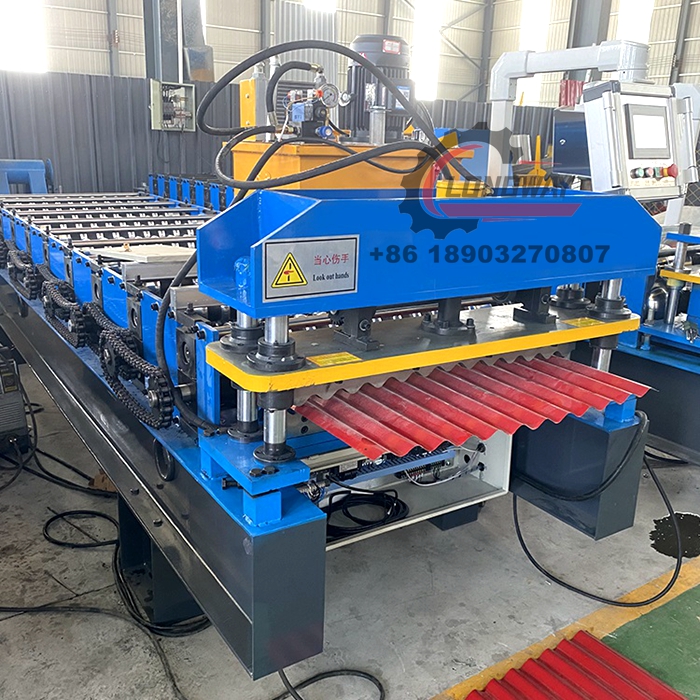Equipment Solutions for Roofing Sheet Manufacturing Companies
The Role of Machines in Roofing Sheet Manufacturing
In the modern construction industry, efficiency and precision are paramount. Among the various materials used, roofing sheets have gained significant popularity due to their durability, cost-effectiveness, and aesthetic appeal. However, the quality and consistency of these sheets heavily depend on the machinery used in their manufacturing. This article explores the role of machines in roofing sheet companies, emphasizing their importance in streamlining production processes, ensuring quality, and meeting the demands of a competitive market.
The Manufacturing Process
The production of roofing sheets involves several stages, including raw material preparation, shaping, cutting, and finishing. Advanced machinery is employed at each stage to enhance efficiency and maintain high standards. For instance, steel or aluminum coils are commonly used as raw materials. Machines called slitters are utilized to cut these coils into specific widths required for roofing sheets. This initial process is crucial as it lays the foundation for subsequent operations.
Once the coils are cut, roll forming machines come into play. These machines shape the flat strips of metal into desired profiles, such as corrugated or standing seam designs. The roll forming process is not only time-efficient but also ensures consistency in the dimensions and shape of the produced sheets. The precision of these machines minimizes material wastage and allows roofing sheet companies to optimize their resources effectively.
Importance of Automation
Automation is a defining trend in the roofing sheet manufacturing industry. Automated systems are increasingly being integrated into production lines to enhance productivity and reduce labor costs. For example, automated stacking and packaging machines can efficiently manage the handling of finished products, freeing up workers for more skilled tasks. This shift not only speeds up the manufacturing process but also ensures that the products are packaged securely for transport.
Moreover, advanced technologies such as Computer Numerical Control (CNC) machines allow for high precision in cutting and forming processes. CNC machines are programmed to perform complex cuts and shapes, resulting in a higher quality finish. This technological advancement helps roofing sheet companies meet specific client requirements while maintaining a high level of consistency across production batches.
machine for roofing sheet companies

Quality Control
Quality control is another critical aspect of roofing sheet manufacturing. Machines equipped with sensors and monitoring systems can perform real-time checks throughout the production process. These systems track parameters such as thickness, width, and surface quality, ensuring that any defects are detected and corrected promptly. By using such technology, roofing sheet companies can significantly reduce the rate of returns and enhance customer satisfaction.
In addition to monitoring during production, testing machines are used to analyze the final products. These machines assess factors such as resistance to weather conditions and structural integrity, ensuring that the roofing sheets meet industry standards. The ability to provide high-quality products consistently gives roofing sheet companies a competitive advantage in the market.
Sustainability in Production
As environmental concerns grow, roofing sheet manufacturers are increasingly focusing on sustainable practices. Machinery plays a vital role in this shift. Energy-efficient machines not only reduce operational costs but also minimize the carbon footprint of the manufacturing process. Additionally, advancements in recycling technology allow companies to reclaim scrap materials and integrate them back into the production cycle, thus promoting a circular economy.
Conclusion
In conclusion, the machines used in roofing sheet manufacturing are indispensable in ensuring that companies can produce high-quality, consistent, and sustainable products. From raw material preparation to quality control, automation and advanced technologies play a crucial role in streamlining operations and meeting the evolving needs of the construction industry. As the demand for roofing sheets continues to grow, investing in cutting-edge machinery will be essential for companies looking to stay competitive and responsive to market trends.
-
Roof Panel Machines: Buying Guide, Types, and PricingNewsJul.04, 2025
-
Purlin Machines: Types, Features, and Pricing GuideNewsJul.04, 2025
-
Metal Embossing Machines: Types, Applications, and Buying GuideNewsJul.04, 2025
-
Gutter Machines: Features, Types, and Cost BreakdownNewsJul.04, 2025
-
Cut to Length Line: Overview, Equipment, and Buying GuideNewsJul.04, 2025
-
Auto Stacker: Features, Applications, and Cost BreakdownNewsJul.04, 2025
-
Top Drywall Profile Machine Models for SaleNewsJun.05, 2025








